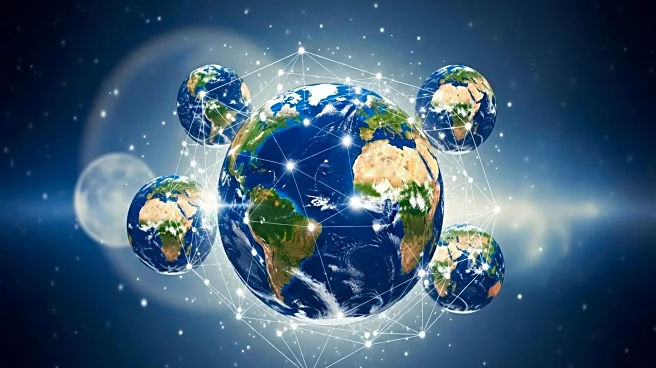What is the story about?
What's Happening?
The SERVIR program, a joint initiative by NASA and the U.S. Agency for International Development (USAID), faced potential termination after USAID withdrew funding and NASA ended related agreements. Despite this, the program has continued through the establishment of the SERVIR Global Collaborative, supported by regional institutions, universities, and foundations worldwide. This collaborative effort allows SERVIR to continue its mission of using Earth observation data to help developing nations tackle environmental challenges. The program operates in 50 countries across Africa, Asia, and Central and South America, leveraging satellite imagery and geospatial expertise.
Why It's Important?
The continuation of SERVIR highlights the resilience and adaptability of international collaborations in addressing global environmental issues. By maintaining its operations, the program continues to provide critical data for managing resources, monitoring climate change, and predicting natural disasters. The shift to a collaborative model without U.S. government constraints allows SERVIR to expand its reach and impact, potentially leading to more innovative solutions and partnerships. This development underscores the importance of global cooperation in tackling environmental challenges and the role of technology in sustainable development.
What's Next?
The SERVIR Global Collaborative will continue to seek diverse funding sources to ensure its sustainability and resilience. As the program expands its global footprint, it will focus on fostering local initiatives and building capacity in regions most affected by environmental challenges. The collaborative aims to innovate and adapt its approach to meet the needs of stakeholders, reducing reliance on philanthropic support. This evolution may lead to new partnerships and projects that further enhance the program's impact on global environmental management.
















